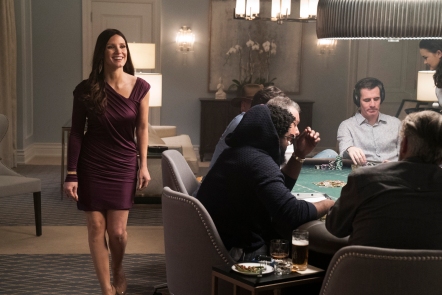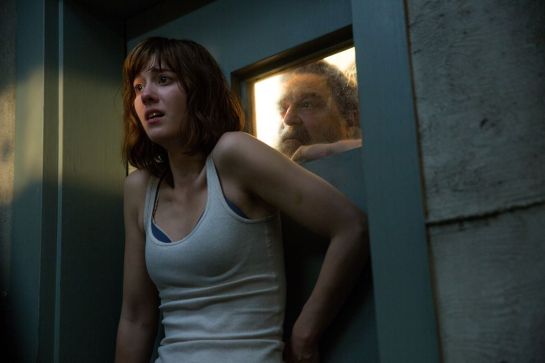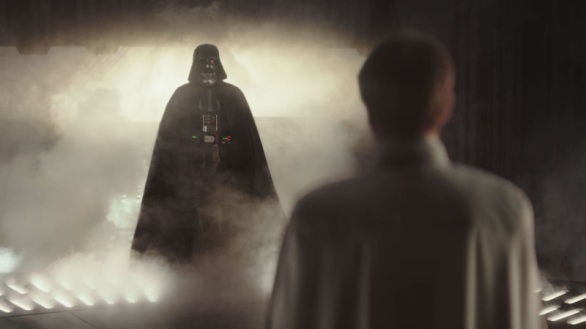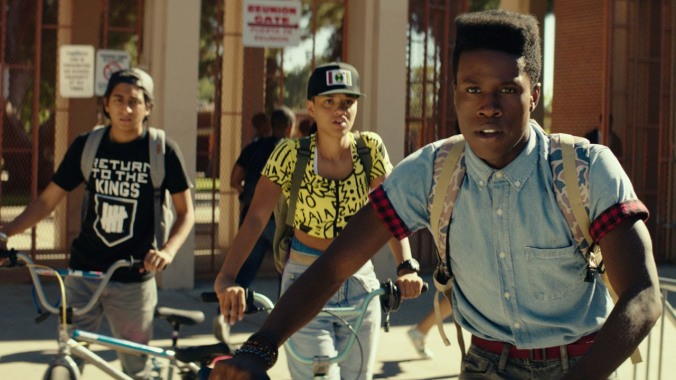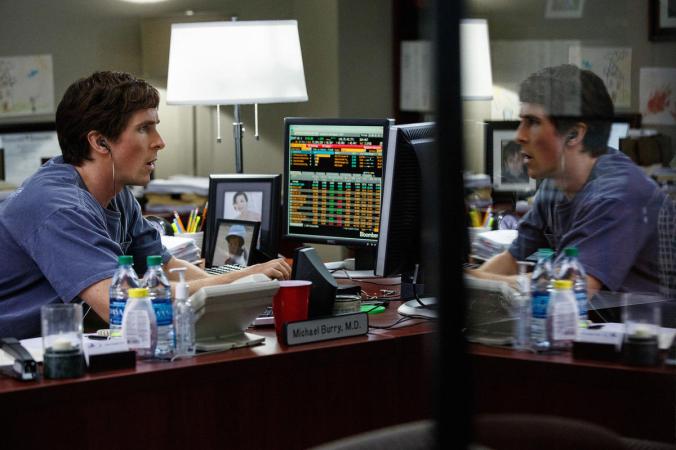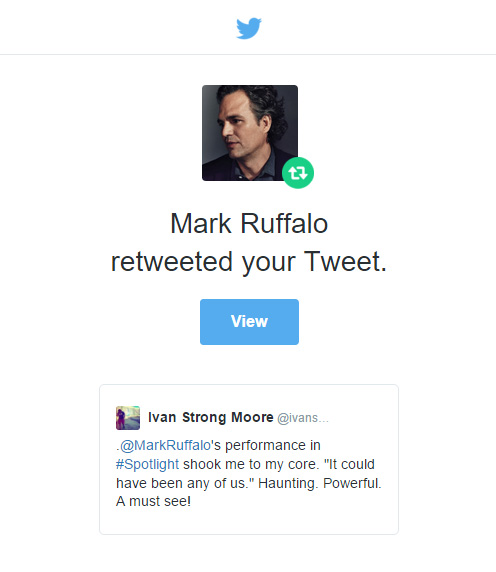It’s the end of another year in cinema and, looking back on the year that was, I can definitively say that we are living in a golden age of television. That’s right, with streaming services and cable channels churning out tons of risky, unique stories on the small screen, I can’t help but be disappointed by the onslaught of passable, at times directionless fare we got on the big.
I had a ton of fun with movies like Wonder Woman, Thor: Ragnarok, and Spider-man: Homecoming but then screamed in disappointment at a underwhelming new King Kong, a beautiful but bloated Blade Runner sequel, and, in my opinion, an offensively bad first shot at the Justice League. By the time awards season rolled around, I was feeling pessimistic about the movies 2017 had to offer.
I still don’t think it’s been a particularly strong year for film. Here’s hoping the trend of studios trying to make their own Stranger Things will pass soon. Even some of the early awards favorites like The Shape of Water and Three Billboards Outside Ebbing, Missouri failed to connect with me. However, after a solid binge of movies we missed or were recommended to us, I’ve filled out my top ten movies of the year.
10. Split
Confession time. I love M. Night Shyamalan. Sure he peaked way early with The 6th Sense, and may have made a few enemies with The Last Airbender, but I still think he’s brilliant. Thankfully, we are moving into an era of not having to hide Shymalan fandom any longer. After surprising fans with The Visit, the “Shy-man” was back to form and this year rocked my world with Split. An incredible performance by James McAvoy and a story that both narratively and visiually kept me guessing makes this one of Shymalan’s best. Perhaps my favorite parts of this film were the things unsaid, the nuanced details I’ve since gone back and realized. Toss in a beautiful theme that would make Alessia Cara proud, and I’m ready for the upcoming sequel.

9. The Lego Batman Movie
When 2014’s The Lego Movie came into my life, I thought there couldn’t be a movie more tailor made for me. To that, The Lego Batman Movie says, “hold my drink.” Legos, super heroes, jokes, stunning animation, and a story about friendship and, really, the family of God, come on! Does it get any better? Batman isn’t even my favorite superhero, but watching him make mouth sounds to lobster thermidor warming in his microwave made me fall in love. Here’s hoping for a Robin-centric sequel. Fly, Robin, fly.
8. Detroit
From two movies that I’ve already watched multiple times, to two movies I’m in no hurry to watch again. The first of which is Kathryn Bigelow’s Detroit. Telling the story of the 1967 events that tore a city apart, Bigelow brings her expertise in depicting war to the streets of Civil Rights America. The content is horrific and has left audiences split, but I don’t remember this story even being a footnote in my history books. The story has to be told, and, to do the story justice, the horrors had to be real. Our history is ugly and Detroit puts that ugliness on display. There is so much in the movie that will break your heart, but, after everything Bigelow takes her audience through, watching John Boyega’s character, Melvin, in his final interrogation scene might bring you to your knees. Read Heather’s complete reflection on Detroit here.

7. Wind River
Throughout Wind River, you’ll hear again and again how desolate, how draining, how terrible the living conditions are in its rural Wyoming setting. That narrative is so present it’s often the sole excuse given for the deplorable actions in the film. You may even feel cold watching the movie. Then you realize, for many of the characters, they have no choice but to live there. Writer/director Taylor Sheridan, who topped by list last year with Hell or High Water, here tackles the shocking reality of missing indigenous women. I’ve got mixed feelings about depicting sexual violence in film, but, again if this story is going to be told it has to be given justice. Wind River is heartbreaking, suspenseful, and masterful storytelling but telling that story means shining a light on the dreadful things happening in America’s dark shadows.
6. Molly’s Game
Molly Bloom is a fascinating person and her story, written in her book “Molly’s Game,” is a fascinating story, but those things do not make a fascinating movie. Aaron Sorkin’s writing makes a fascinating movie especially when telling remarkable true stories. Just as he did with Facebook’s Mark Zuckerberg and Apple’s Steve Jobs, in Molly’s Game, Bloom, a former world-class skier who at 26 was earning millions of dollars running poker games for celebrities and mobsters, gets the total Sorkin treatment. In the hands of a less capable storyteller, this movie could have been a Rounders remake, but alongside thrilling performances by Jessica Chastain and Idris Elba, Sorkin’s directorial debut had me all in.

5. Baby Driver
Baby Driver is a technical achievement. If you’re unaware, director Edgar Wright (Shaun of the Dead, Hot Fuzz), wrote this heist movie with the entire soundtrack in mind. The soundtrack is pumped through the headphones of lead character, Baby, who uses music to drown out his chronic tinnitus. Wright then took that soundtrack and blocked, crafted, and choreographed a symphony of chases and action scenes. It is breathtaking. Every step, every gunshot, every background noise plays into the music creating a chaotic harmony that puts fully on display Wright’s filmmaking genius. Underneath the technical skill, also lies a story about maintaining innocence in an increasingly harsh world. If you’re anything like me, you won’t want to put Baby in a corner, but straight into your blu ray player for repeat viewings as you unpack everything Wright jammed into the film. The soundtrack is also available on Spotify in case you find yourself on the run. Read my complete reflection with companion Psalms for Baby Driver here.
4. Get Out
The best theater experience I had this year (maybe ever), including Star Wars, was Get Out. With every twist and turn the the sold out theater came unglued with gasps, laughs, and screams. When it came to its climatic end, row after row jumped to their feet cheering, clapping, and dancing in the isles. It was cinematic magic. For many, it was a therapeutic, genre bending take on the horrors of their reality. With Get Out, Jordan Peele is giving audiences a creative taste of his own experiences. I suggest you watch it, maybe with someone who doesn’t look like you, because it is a film best enjoyed in community. Read my complete reflection on Get Out with discussion questions here.

3. Star Wars: The Last Jedi
I love The Last Jedi. Come at me! I’ve often considered my Star Wars zeal to be fairly moderate. I’ve read some comics, but haven’t read the expanded universe novels. I have a few toys on display, but haven’t attended a convention or own my own stormtrooper armor. I’ve seen every episode of Clone Wars, most of Rebels, and both Ewok spin-off movies. I’m a fan and I know that fans love how much they know about Star Wars, and director Rian Johnson took that hubris and knocked us right off our high horse. I would say, the majority of the hardcore fans I know did like it, but still there’s a lot of hate out there and I just don’t get it.
I don’t want the galaxy to return to the state it was in when Episode I begins, a too-big-for-their-britches Jedi order and a world steeped in bureaucracy. It has to evolve to something more. For decades now, Star Wars has been a beautifully simple story that anyone can relate to, but as the universe expands, the complexity has to expand. War is not simple, and The Last Jedi, led by a conflicted and weathered Luke Skywalker, isn’t a simple story and one even the most learned fans couldn’t see coming. The original Star Wars was a surprise to fans in 1977, and now the finale of this new trilogy has the opportunity to do the same. Read my complete reflection on The Last Jedi here.
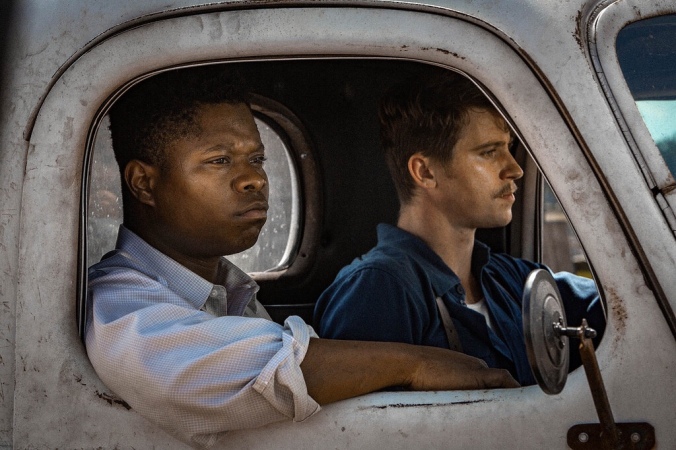
2. Mudbound
Mudbound is a beautiful and tragic film. Director Dee Rees took a book about life post-WWII in the Mississippi Delta and created a film that feels like your reading an epic southern novel. This is a time-period that feels like a world in flux. America just got back from helping to liberate countries at war, countries ravaged by hate, violence, and prejudice and, yet it was an America that was still being ravaged by hate, violence, and prejudice. Under their brilliant auteur, this cast gives so much life and breath to the lives of these characters. Sometime soon Jason Mitchell (Straight Outta Compton, Detroit) will win an Oscar and I hope it comes from this one, along with a potential statue for Mary J. Blige as well. Mudbound has the ability in the matter of minutes to take you from the thrilling hope of progress, togetherness, and healing into a space of fear, division, and ignorance and still the characters keep pressing on into the future. As we keep pressing on today, it was a helpful reminder of the ups and downs of progress. Read my complete reflection on Mudbound here.
1. Logan
Logan did the impossible. I hate Wolverine. I hate that he is a terrible teammate. I hate that he constantly runs into battle with no plan just screaming and slashing. I have hated his two solo movies, X-Men Origins: Wolverine and The Wolverine, mostly because they feature him running, screaming, and slashing for two hours. Even in X-Men movies I like, for example Days of Future Past, Wolverine is the worst part. Seriously, watch the final battle in Days of Future Past…with no plan and no thought he runs straight at Magneto, who can control the very substance Wolverine is made of, and immediately gets tossed aside. He’s the worst, but Logan made me love him.
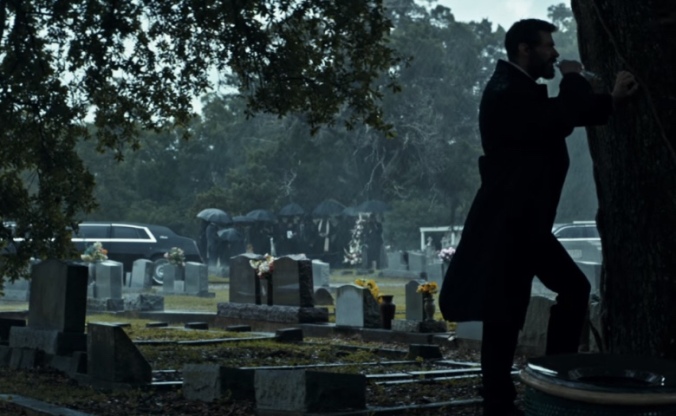
All of his mistakes, all of the running, screaming, and slashing, is coming back to haunt an older, regret-filled Wolverine. He now hates the things I hate about him. This is an uncomfortably violent and bloody film, but that is kind of the point. His life has been defined by violence and this is now a cycle he can’t rip his way out of. Tragedy has struck everyone he’s been close to and all of the running and screaming in the world couldn’t save them. Logan plays out as Wolverine’s penance. Throughout the film he is emotionally and physically torn apart piece by piece until there is little left.

Still, what is left, is hope. What Wolverine had never realized in movies before is that he’s not the X-Men’s greatest weapon, but he could have been their greatest protector. As he comes to terms with his mistakes, he begins to change his role and, in doing so, preserves the future of mutant-kind. Also, watching Logan care for an aging Professor X, with an awards-caliber performance by Sir Patrick Stewart, showed me vulnerability I’ve always wanted and had never seen from Wolverine. As superhero fans begin to expect more complex stories from their big blockbuster films, the brutal and emotional Logan has sent me running and screaming into the next era of comic book movies.
